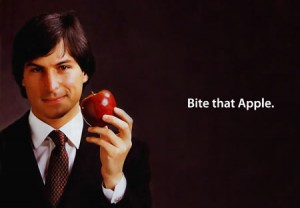In response to Samantha Kho’s blog Going Veg.
I believe there is a huge ethical issue with these new restaurant openings near holy pilgrimage sites. Even though I was shocked to see this quote from a McDonald’s spokesperson, “In markets across the world, McDonald’s respects local cultures and has adopted our menu and dining experience to local preferences. The new restaurants in pilgrimage areas will be vegetarian-only because of the specific area and customer base,”. This statement is contradicting and misleading. If McDonald’s really respected the local culture the company would have made these restaurants by these holy sites. Eating meat is sacred in these areas. What is McDonald’s? A burger joint. It is a disgrace to the people for even having the brand image of McDonald’s in their vicinity. The statement is also misleading in the fact that these words are sugar coated. ” respects local cultures and has adopted our menu and dining experience to local preferences”, this is not showing respect to local cultures, this is just trying to make profit. I would not disagree with the approach McDonald’s is making on expanding in the Indian market but showing respect to culture and changing one’s menu is two completely different things.
In easy terms, McDonald’s new restaurants is like a Manchester United fan walking into a local London pub filled with Arsenal fans, It does not match.
Monthly Archives: November 2012
Diabetes not your problem? Think again
I was shocked to see this information in the article Diabetes not your problem? Think again
Canada’s economy, businesses, and us individuals are effecting by poor decisions made by others.(Dis including people who had no control over being diagnosed) Drastic changes need to be made to avoid these ridiculous losses we need to incur. “Conservative” estimates in 2000 were 2.5 billion dollars. Estimation of 16.9 billion dollars in 2020 for the costs of diabetes. Unfortunately due to people who only care for themselves, monetary incentives may be needed to force people to eat healthier and exercise more frequently. Subsidies or taxes may be needed to enforce these actions. The only problem with these methods are they are hard to measure and will have ethical issues involved. A way to enforce subsides may be through individual businesses. If a business incorporates a diabetes prevention program with sufficient participants a subsidy may be given. The government needs to intervene one way or another to get a message across to people. Not only is one’s own health in jeopardy but there are substantial costs to the country as a whole.
RE:Arising Social Responsibility Mindset of Consumers and Businesses
In response to Melissa Ng’s blog https://blogs.ubc.ca/melissang/2012/11/10/new-arising-mindset-of-consumers-and-businesses/
I disagree with Melissa that the future of businesses is to think less about profit then it is to be socially responsible. In a perfect world where all people have a high disposable income, consumers may think to become more socially responsible but reality is not so sweet. Two identical shoes, but one is priced higher for some socially responsible act. If there a no significant ties to the socially responsible act most people will buy the cheaper shoes. AlthoughToms is a great exception to this. Toms has done an outstanding job of promoting itself through celebrity endorsements. The reality is though Toms is a trend and will struggle in the future. I believe though businesses will strive to become not socially irresponsible. This will become a new point of parity which businesses will aim to obtain. In a situation with two identical shoes, one shoe has a median between socially responsible and not socially irresponsible, while the other shoe is socially irresponsible. One would assume people would buy the first shoe. I believe if businesses are better off with their profits being not socially irresponsible compared to being socially irresponsible, they would go with the first.
Where is the logic?
Women are a complex creature, studied by many yet rarely understood. A few weeks ago a friend of mine was discussing on the possibility to start a fragrance business. Out of curiosity I searched the profit margins for fragrances. They were on average a whopping 95%. With technological advancements fragrances are now made on an average of around $1-2. The majority of the costs come through packaging, the container itself, and advertising. I thought to myself a fragrance business would be a great idea but slowly realized the difficulties involved. Most high end fragrance companies are not selling a fragrance at all, they sell their brand. The difference between a $150 perfume to a $20 is really close to none. Some cases the $20 perfume may even smell better than the $150. One would think the barriers to enter are relatively low, which they are but yet not. You could even say there are two barrier of entry for fragrance companies. The small barrier is creating a fragrance. The second barrier is the brand barrier. To make these logic defying profits you need an established high end brand or the cash to endorse a celebrity.
I was shocked by the power and the influence that brands can have on people.
Unless one really likes the smell, is there a need to buy a 30 cent chemical for over $150?
I-Pod, I-Pad, I-…….
Imagine you were creating the Macintosh computer. Or if you were creating the I-pad. What type of market research would you have forgone? Would you have conducted surveys to potential consumers? The reason Steve Jobs was so successful was surprisingly the fact that he did almost no market research. Many would find it hard to believe that Jobs view on market research and focus groups only limited one’s ability to innovate. When asked how much research was done to guide Apple when he introduced the I-Pad, Jobs said, “None. It isn’t the consumers’ job to know what they want. It’s hard for consumers to tell you what they want when they’ve never seen anything remotely like it.” The astounding thing about an entrepreneur is their vision to see ahead. They are always a few steps ahead of everyone else in terms of their vision. What differentiated Steve Jobs from others was his talent with technology. His vision was an extra few steps ahead of everyone else. A response to a reporter sums up to me what an entrepreneur is, “Did Alexander Graham Bell do any market research before he invented the telephone?”
one hundred dollars, two hundred dollars, three hundred dollars…….
Two business owners are both busy and don’t have time to keep up with their bookkeeping. The first owner decides to higher an accountant to keep track of these issues. The second owner decides that bookkeeping is all mumbo jumbo and decides to leave things as they are. A few years later the first owner is swimming in a pool of money whilst the second owner is swimming in a pool of tears.
If you don’t like accounting you’re basically saying you want to burn money and throw it away. When your company’s expenses are off the charts who do you talk to? When you want to know your most profitable customer or product? Does the company currently have the cash flow to avert a crisis? Having a hard time remembering deadlines; rent, loans, bills, and taxes? From making your business more cost effective, to making more profits, avoiding sticky situations, and keeping up with deadlines are just a few of the ways an accountant can help with your company.
People say accounting is no fun. My idea of fun is walking around with extra bills in my wallet. If your idea of fun is walking around with piles of debt in your pocket be my guest.
More for others!
Leave the tough stuff to the accountants! https://www.youtube.com/watch?v=G6vS1edTsV8


